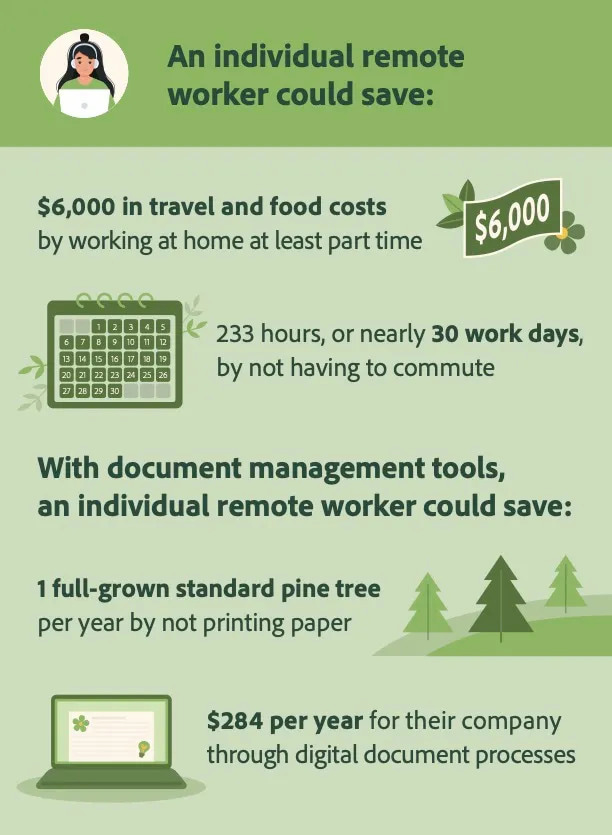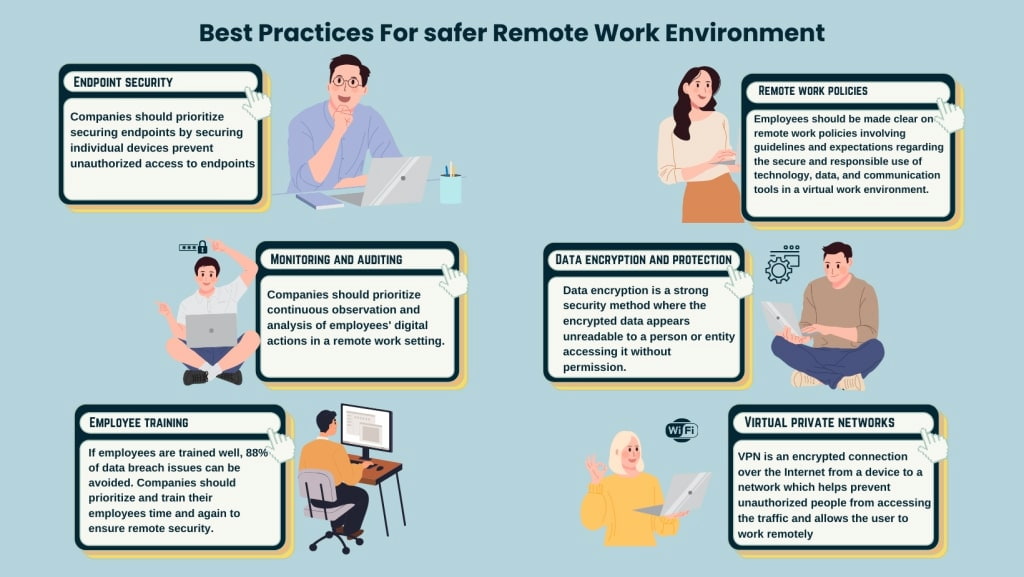In recent years, the concept of working from home has gained significant traction. With advances in technology (including using the best time tracking software) and changing attitudes toward work-life balance, more employees and employers are embracing remote work. While there are notable advantages and disadvantages of working from home for employers and employees alike, understanding the pros and cons can help you make the most of this flexible arrangement. This article will delve into the benefits of working from home, highlighting how this setup can boost productivity, improve work-life balance, and offer unique perks that are reshaping the modern workplace. We will explore working from home advantages and disadvantages in detail—so strap in!
12 Benefits of Working from Home
No commute time
One of the most significant work from home benefits is eliminating the daily commute. This not only saves time but also reduces expenses related to fuel, public transportation, and vehicle maintenance. Additionally, it helps reduce stress and fatigue associated with long commutes, allowing employees to start their workday more relaxed and energized.
Flexible schedule
Working from home often provides the opportunity for a more flexible schedule. Employees can adjust their work hours to better fit their personal lives, making it easier to balance professional and personal responsibilities. This flexibility can lead to higher job satisfaction and improved morale, as employees can attend to personal matters without taking time off work.

Increased productivity
Many people find that they are more productive when they work from home. With fewer office distractions and the ability to create a personalized, comfortable work environment, it’s easier to focus and complete tasks efficiently. Studies have shown that remote workers often achieve higher productivity levels due to fewer interruptions, a quieter work environment, and their own desk setup.
Cost savings
Work from home benefits include significant cost savings on commuting, work attire, and meals. Employees no longer need to spend money on daily transportation, business lunches, or maintaining a professional wardrobe. This can add up to substantial savings over time, making remote work financially advantageous for many.
Better work-life balance
One of the key work from home perks is the ability to better manage work-life balance. With more time saved from commuting and the flexibility to handle personal tasks during the day, employees can achieve a more harmonious balance between their work and personal lives. This can lead to greater overall happiness and reduced burnout.
Healthier lifestyle
Working from home can promote a healthier lifestyle. Employees have more time to exercise, prepare healthy meals, and take breaks as needed, leading to improved physical and mental health. The ability to integrate physical activity into the day, such as taking a walk during lunch breaks, contributes to a healthier routine.
Customization of work environment
Another benefit of working from home is the ability to customize your work environment. Employees can set up their home office to suit their needs and preferences, creating a space that enhances their comfort and productivity. This includes choosing ergonomic furniture, optimal lighting, and personal decor that makes the workspace inviting.

Reduced stress
The flexibility and convenience of working from home can lead to reduced stress levels. With no daily commute, a more comfortable work setting, and the ability to take breaks as needed, employees often feel less stressed and more content with their work situation. The reduction in stress can also contribute to better overall health and well-being.
Improved family time
Work from home benefits include the ability to spend more time with family. This is particularly valuable for parents who can be more present in their children’s lives and manage household responsibilities more effectively. Being home more often can strengthen family bonds and provide a more supportive home environment.
Environmental impact
Working from home can have a positive impact on the environment. With fewer people commuting, there is a reduction in traffic congestion and carbon emissions, contributing to a greener planet. Remote work also reduces the need for large office spaces, which can decrease the overall environmental footprint of businesses.

Enhanced focus and efficiency
Working from home allows employees to create a distraction-free environment, leading to better focus and efficiency. This can result in higher-quality work and increased job satisfaction. Without the noise and interruptions of a traditional office, employees can complete tasks more quickly and effectively.
Access to a global talent pool
For employers, one of the working from home perks is the ability to hire from a global talent pool. This can lead to a more diverse and skilled workforce, as companies are not limited by geographic location when hiring. However, it also requires effective remote management and communication strategies to ensure team cohesion and productivity.

By understanding these pros to working from home, both employees and employers can better appreciate the benefits of work from home and navigate any challenges that come with it. Embracing remote work can lead to a more satisfied, productive, and healthy workforce while also offering significant advantages to businesses.
12 Disadvantages of Working from Home
Isolation and loneliness
Working from home can lead to feelings of isolation and loneliness, especially for those who thrive on social interactions. The lack of daily in-person contact with colleagues can result in reduced morale and feelings of disconnection. This can be mitigated by regular virtual meetings and social activities, but it remains a significant challenge for many remote workers.

Difficulty in separating work and personal life
One of the major disadvantages of working from home is the blurring of boundaries between work and personal life. Without a clear separation, it’s easy to overwork or feel guilty about taking breaks, leading to burnout. Establishing a dedicated workspace and setting strict work hours can help maintain a healthy work-life balance.
Distractions at home
Working from home often involves dealing with various household distractions, such as family members, pets, or household chores. These distractions can interrupt work and decrease productivity. Creating a quiet, dedicated workspace and setting boundaries with family members can help minimize these interruptions.
Lack of access to office resources
Remote workers may find themselves without access to essential office resources, such as high-speed internet, printers, or specialized equipment. This can make certain tasks more challenging and time-consuming. Employers can support remote workers by providing the necessary tools and equipment to ensure they can perform their duties effectively.

Communication challenges
Effective communication can be more difficult when working from home. Misunderstandings can arise more easily without face-to-face interactions, and remote workers may feel out of the loop on important information. Utilizing reliable communication tools and establishing clear communication protocols can help alleviate these issues.
Reduced collaboration and teamwork
Disadvantages of working from home include the potential for reduced collaboration and teamwork. Remote work can make it harder to brainstorm, share ideas, and collaborate on projects. Regular virtual meetings, collaborative software, and clear communication channels are essential to maintain team cohesion and productivity.
Technical issues
Remote work relies heavily on technology, which can sometimes be unreliable. Technical issues such as internet outages, software problems, or computer malfunctions can disrupt work and lead to frustration. Having a reliable IT support system in place can help mitigate these challenges.
Potential for overworking
The flexibility of working from home can sometimes lead to overworking. Without the natural end-of-day cues provided by an office environment, remote workers may find themselves working longer hours. It’s important to set clear work hours and take regular breaks to prevent burnout.

Limited career advancement opportunities
Remote workers may feel that they have fewer opportunities for career advancement compared to their in-office counterparts. The lack of visibility and face-to-face interactions with management can make it harder to stand out and be considered for promotions. Regular performance reviews and career development discussions can help address this issue.
Security concerns
Working from home can raise security concerns, particularly when dealing with sensitive information. Home networks may not be as secure as office networks, increasing the risk of data breaches. Employers should provide secure remote access solutions and educate employees on best practices for maintaining security while working from home.

Impact on team dynamics
The lack of physical presence can impact team dynamics and make it harder to build relationships with colleagues. Informal interactions, such as water cooler conversations, play a crucial role in team bonding and can be difficult to replicate virtually. Regular virtual team-building activities can help strengthen team relationships.
Dependence on self-motivation
Working from home requires a high level of self-motivation and discipline. Without the structure of an office environment, some employees may struggle to stay focused and productive. Setting personal goals, creating a daily schedule, and maintaining a routine can help improve self-motivation and productivity.
Understanding these disadvantages of working from home can help employees and employers implement strategies to overcome these challenges. By addressing the potential downsides, businesses can create a more supportive and effective remote work environment.
Benefits of Working from Home: Conclusion
While working from home offers numerous benefits, it’s essential to recognize and address its challenges. By understanding the disadvantages such as isolation, blurred boundaries, and communication hurdles, both employees and employers can implement strategies to enhance the remote work experience. With the right tools and support, like Everhour for seamless time tracking, remote work can be productive, balanced, and rewarding. Embracing the opportunities while mitigating the drawbacks ensures a sustainable and efficient work-from-home environment.
Remote work tools like Everhour, the top time tracker for SMB teams, further enhance productivity. If you are managing a team of 5 or more and looking to boost efficiency, Everhour is the perfect B2B project management tool. With seamless time tracking, you can easily estimate task durations, set clear budgets, and generate detailed reports inside Asana, Trello, Jira, or any other pm tool.
Check out our collection of working from home memes to have a bit of a laugh 😉

